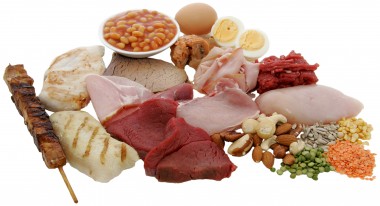Are we eating enough Protein?
Firstly, let’s look at the 3 macronutrients in our foods. They are split up into Carbohydrates, Proteins and Fats. Every food out there is made up of these food groups in varying amounts depending on what it is. A chicken breast will have more protein per 100g than a piece of bread, which would have more carbohydrates per 100g.
Macronutrients are nutrients that provide calories or energy.
Nutrients are substances needed for growth, metabolism, and for other body functions. Since “macro” means large, macronutrients are nutrients needed in large amounts.
In our last blog, we talked about how many calories we need per day individually, which is a great way to begin changing your dietary habits. What we now want to look at is how we break our total daily calorie total into the 3 macronutrients.
This can be tricky, as depending on what you are doing in your daily life, you may need more or less of one than the other. If you are doing a lot of exercise then you will predominately need more of each macronutrient than someone who is more sedentary. If your aim is to build lean muscle and look more ‘toned’ you are going to need more Protein in your diet and possibly more carbohydrates (for weight gain, although this won’t be as lean).
But there is a rough guide for the amount of Protein we all should be getting, both women and men. One thing I see all too commonly however is a lack of protein in our diets, protein is essential to building tissue, cells and muscle. We also have 9 ‘essential’ amino acids that we have to get from eating/drinking protein. Essential means that our body cannot make them and so we have to ingest them.
Protein increases satiety, which is the feeling of being ‘full’, which helps anyone on a weight-loss, fat-loss, lean muscle gain meal plan. But how much should we take?
Roughly speaking, if we are trying to lose a few pounds or inches around the waist we should take between 0.8g – 1g of Protein for every lb we weigh. So if a man was to weigh 80kg, this is 176lbs. This person should have 176grams of protein per day.
If you are female aim for 0.8g per lb bodyweight and male 1g per lb bodyweight. If you are doing more exercise and/or want to gain more lean muscle, these figures would increase, contact us for more info on this.
If possible we should aim for 5-6 meals a day, including snacks, making our day looking like this:
Breakfast – 7am
Mid-morning snack – 10am
Lunch – 1pm
Afternoon snack -4 pm
Dinner – 7pm
Why do we want to eat small amounts every 2-3 hours for weight management? Well there are a whole host of benefits eating this way; such as increased metabolism from the thermic effect of food, increased satiety, sticking to a meal plan (if you don’t eat for 6-8 hours you may want to reach for that biscuit to give you a quick release of energy) and more. As with anything this won’t be for everyone, but give it a try and if it works for you then stick with it.
In above example that would be roughly 35g of protein per meal (176/5).
Generally Protein comes from things with eyes i.e. animals, here are some protein sources:

Once you have worked out how much protein per day you should be eating you can work out how many calories that is from your daily diet. Proteins, carbohydrates and fats give us energy in the form of calories, which was discussed last post. The amounts per 1g of each are as follows:
Carbohydrates and Protein = 4kcal per 1g
Fats = 9kcal per 1g.
176grams of protein is therefore 704kcal.
In our example then, our subject (33yrs old) weighs 80kg (176lbs). Let’s say he was 6ft and had a sedentary job. Using the equation on our last blog post, we can work out that his TDEE would mean he must intake 2222kcal per day. (BMR is 1852 and multiplied by 1.2 for sedentary job to get 2222).
If we minus 704 from 2222 we are left with 1518kcal.
This individual should get 704kcal per day from his diet in form of protein.
The remaining 1518kcal depends on the individual as metabolically we are all different and some people’s bodies respond to fats better than carbohydrates and vice-versa. There are tests for this which we will discuss on a further blog post.
Let’s say he responds well to eating more fats in his diet, in this situation I would recommend him getting 20% of daily diet from carbohydrates.
20% of 2222 is 444kcal, which is 111g of carbs (444/4)
This leaves 1074kcal left, to be derived from fat sources. 1074kcal divided by 9 is 119grams.
So his daily totals would be:
176g of Protein
111g of Carbohydrates
119g of Fats
This would be a good base to start, but as with anything this can be tweaked.
Why don’t you work out how much protein a day you should be eating and see whether you are eating enough?
This really just scratches the surface on this issue, contact us at Oceanfitnesspoole for more information.
Mike

 Menu
Menu